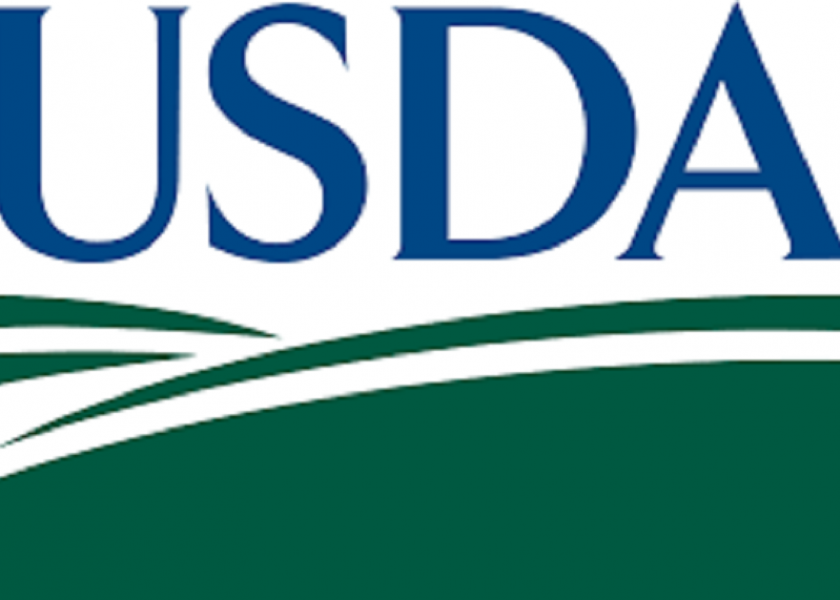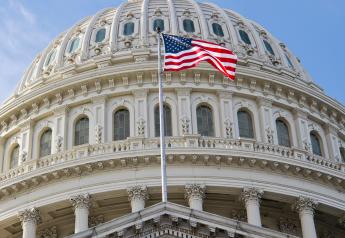USDA to invest in improving greenhouse gas measurements in agriculture

The USDA will invest $300 million to improve measurement, monitoring, reporting and verification of greenhouse gas emissions and carbon sequestration in climate-smart agriculture and forestry.
Agriculture Secretary Tom Vilsack announced the $300 million investment through President Biden’s Investing in America agenda, according to a news release.
The new investments, made possible by the Inflation Reduction Act, will advance priorities set by the broader Federal Strategy to Advance Greenhouse Gas Measurement and Monitoring for the Agriculture and Forest Sectors, which was released July 12 as draft for public input. The document outlines a strategic framework and priority actions for improving accuracy and reducing uncertainty in greenhouse gas estimates, the release said.
The Inflation Reduction Act provided nearly $20 billion in overall investments to advance climate-smart agriculture and forestry practices, the release said.
The effective implementation of these climate and conservation investments will help further Biden’s bold goal of achieving a 50% to 52% reduction in greenhouse gas emissions by 2030, compared with 2005 levels.
“Since day one, the Biden-Harris Administration has taken bold steps in climate-smart agriculture by making programs as strong and effective as possible,” Vilsack said in the release. “To do this, we have to improve the scientific backbone of our programs. This new investment by USDA in improving data and measurement of greenhouse gas emissions — made possible by through President Biden’s Investing in America agenda — is unmatched in its scope and potential to increase accuracy, reduce uncertainty and enhance overall confidence in these estimates. We’re data driven, and we seek continuous improvement in our climate-smart agriculture and forestry efforts.”
One of the big remaining technological challenges for tackling the climate crisis is ensuring that natural solutions in agriculture and forestry are working well, John Podesta, senior adviser to the president for clean energy innovation and implementation, said in the release.
“Today’s USDA announcement of $300 million from the Inflation Reduction Act to measure and verify emissions from those sectors is a big step in the right direction,” Podesta said.
Biden’s Inflation Reduction Act tasked the USDA with quantifying and tracking carbon sequestration and greenhouse gas emissions and gathering field-based data to evaluate the effectiveness of climate-smart mitigation practices in reducing these emissions.
To carry out these tasks, USDA has identified seven key focus areas that reflect the framework outlined by the federal strategy and are based on substantial input from stakeholders:
- Establish and advance a Soil Carbon Monitoring and Research Network with a perennial biomass component.
- Establish and advance a Greenhouse Gas Research Network.
- Expand data management, infrastructure and capacity.
- Improve models and tools for assessing greenhouse gas outcomes at operational, state, regional and national scales.
- Improve Natural Resources Conservation Service (NRCS) conservation practice standards and implementation data to reflect greenhouse gas mitigation opportunities.
- Improve temporal and spatial coverage of national conservation activity data.
- Strengthen the Greenhouse Gas Inventory and Assessment Program of USDA.
See this fact sheet for additional details.
USDA is continuing to engage stakeholders and technical experts to help inform this effort. Those interested in learning more about the effort are encouraged to register for a webinar that USDA is holding at 1 p.m. Eastern Daylight Time on July 21.
Additionally, USDA is currently seeking comment on the draft Federal Strategy published July 12, on behalf of the Biden-Harris Administration. The report and request for information are available here: www.regulations.gov/docket/USDA-2023-0009.







